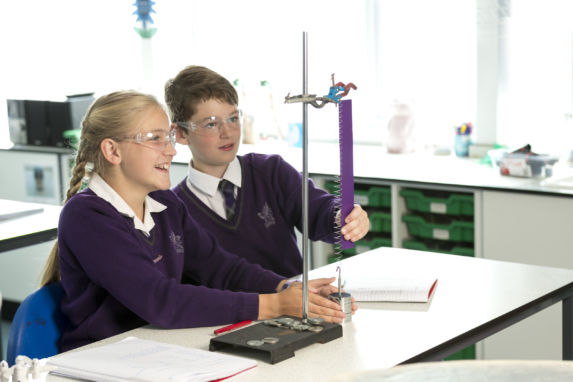You may have heard about how schools use something called ‘value-added’ to measure performance, but it can be a misunderstood concept. Wycliffe College has spent more than a decade feeling justifiably proud of its value-added output and, in this article, we break down what this means.
Everyone will know from personal experience, especially parents with children going into senior school, that academic progress is an individual thing. Progress relies on a whole range of influencing factors and every pupil will make progress at different times and at different rates. While it’s apparently easy to judge a pupil, or how good a school is based solely on exam results – this is just one factor in assessing a school’s merit, and this measure fails to take into account the huge steps pupils have taken to get to the end result.
As a result, value-added measures are used in schools to offer a fair indication of how far a pupil has come and how well that school has helped to progress that pupil.
Value-added is a term used when discussing how much additional learning, experience or development a school offers beyond the ‘average’.
If you looked at all pupils of a certain age and measured their progress over a certain period of time, you’d naturally find different levels of progression. Where some pupils would make a small amount of progress, others would see an average progression, and a few would steam ahead making exceptional progress. However, we understand that improvement in pupils’ achievements is not just down to academic ability and can be hugely affected by the environments the pupils are in i.e., the quality of teaching, availability of resources, extra-curricular activities and many other factors that could have an effect on the individual’s progression.
If one school is seen to increase the achievement level of their pupils more than other schools, then the pupils attending the school gain an advantage. This advantage is called value-added.

Value-added is a measure of the progress pupils make over a period of time. Value-added takes into account how much progress a child has made since their starting point, compared to the progress they have made relative to similar pupils. It is designed to be a fair tool that focuses on measuring progress based on the individual rather than overall exam results in a school.
As a parent looking to make active choices about where their children should be educated, you may find the way school performance is measured tricky to evaluate. After all, if a school is academically selective, then of course they are more likely to measure high levels of progression and show top of the board for being one of the ‘best’ schools based on results. But, if we aren’t comparing like with like, then it isn’t an effective measure to evaluate true progress.
However, by using data from exam tests over the last decade, it enables schools to predict how well each group of children are likely to perform based on their tests results from the start of their school year. When they have taken their final exams, results can be compared with those expectations. If the individuals have done better than they expected, value has been added, if not then value has not been added.
Progression is subjective. We need to recognise how, perhaps for some pupils a Grade 4 at GCSE, is actually a really good performance where value has been added for that pupil.
Rather than just measuring pupil’s progress with academic results, value-added allows people to compare like with like. The value-added analysis shows whether progress is made as a whole at that school, instead of just looking at the schools with the highest academic results.

At Wycliffe, we believe that education is a rounded experience that involves the development of the individual as well as acquiring academic knowledge. We aim to develop the pupil with leadership opportunities and encourage creativity and independence through individualised learning.
Wycliffe’s value-added is one of the best in the country and is supported by continuous monitoring, tracking and assessments meaning the pupils’ progression is reviewed and strategies implemented to help them succeed. Results from GCSE and A Levels show how effective this value added can be to help individuals achieve what they want. Whether you are a pupil studying at Wycliffe right now or looking to move your child during the Senior School Years of 9-11, we can support from the start to the end point.
Opportunities to thrive academically and to cater for individuality, via a wide range of specialist courses and expert teaching. We invest in both curriculum and staff development to ensure the pupils in small classes benefit from the best teaching and learning available and receive the individual attention they need. The wrap-around pastoral house system which fosters a strong sense of community allowing us to pay close attention to pupils’ performance as well as their welfare and needs to ensure each child is given the support they need to thrive.
Wycliffe’s Independent Secondary School is based in the beautiful countryside of Gloucestershire welcoming students from the age of 13-19. We aim to create an inclusive safe and stimulating environment where students can be creative, innovative and develop through an independent, individualised learning approach. Learn more about our Wycliffe Senior School or, for further information, contact us today.
Related Articles